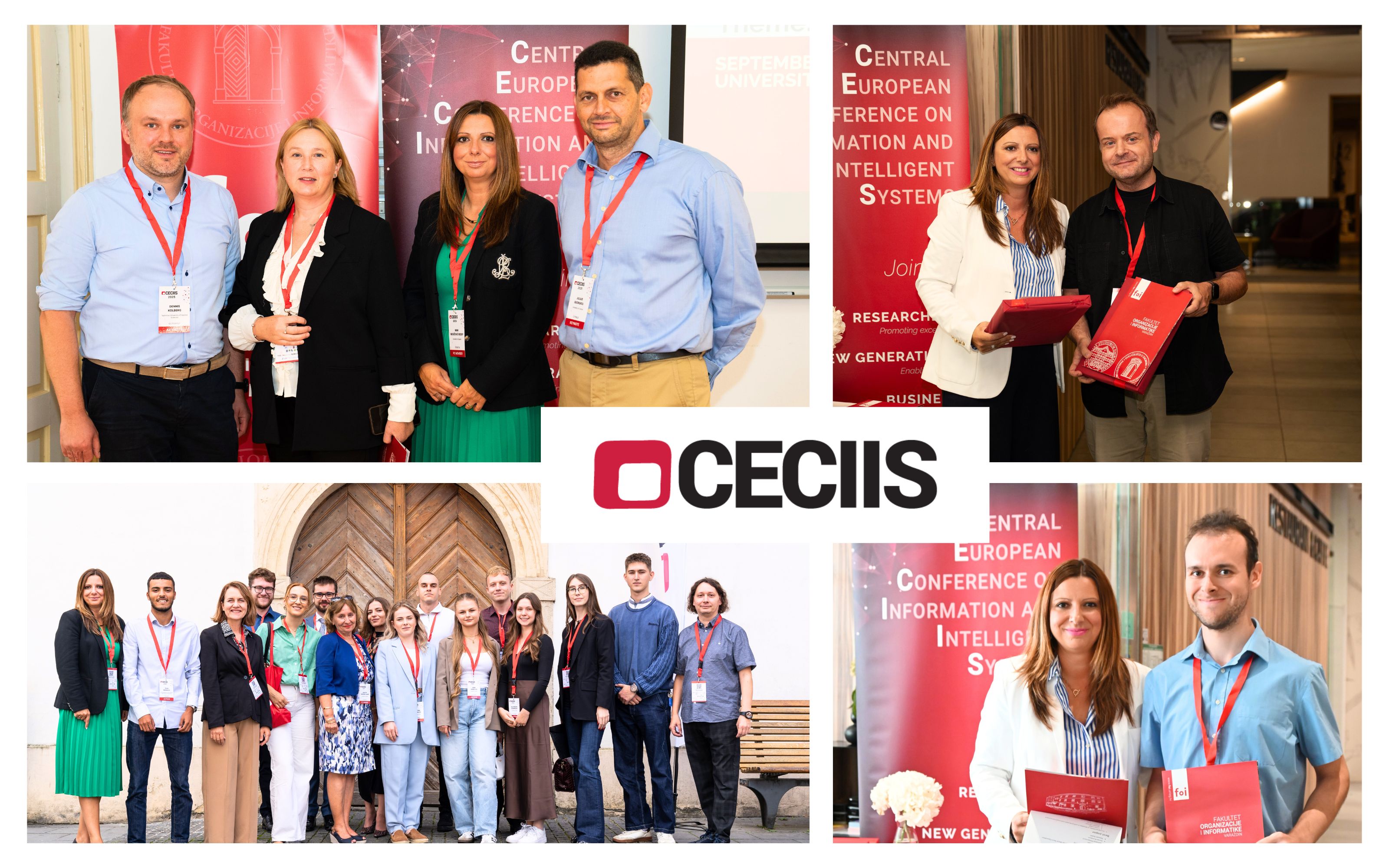This year’s conference theme was “Designing Innovation through Productive Disruptions.” Over the course of three days, participants exchanged knowledge and ideas on the key challenges of the digital age, ranging from artificial intelligence and smart mobility, to digital transformation, corporate culture, the development of intelligent systems, and emerging trends in software engineering. The Program Committee President, Prof. Nina Begičević Ređep, Ph.D., emphasized that this year’s edition once again confirmed the importance of Varaždin and FOI as a hub of scientific and professional exchange in the region: “CECIIS brings together the international scientific community and creates a space for sharing knowledge and ideas in the field of information and intelligent systems. We are proud of the relevance of the topics that connect researchers, industry, and younger generations.” Dean of FOI, Prof. Marina Klačmer Čalopa, Ph.D., highlighted the conference’s continuity and significance: “For 36 years, CECIIS has contributed to bridging science and practice, laying the foundation for innovation and economic development through interdisciplinary collaboration.”
Topical issues and keynote lectures
This year’s conference features keynote lectures by two distinguished speakers. Prof. Julius Georgiou, Ph.D., from the University of Cyprus, delivered a talk entitled “Pushing the Boundaries of Modern Key-Enabling Technologies from Research to Innovation,” in which he presented how miniaturized silicon technologies – from sensors measuring movement, rotation, or electromagnetic waves, to transistors processing these signals – move from research laboratories to concrete innovations in medical devices and generic technologies. Prof. Dennis Kolberg, Ph.D., from the Technical University of Applied Sciences Lübeck, delivered his keynote on the second day of the conference. His lecture, “Approaches in Software Startups to Foster Innovative Products,” addressed the importance of product management methodologies in startup environments, with a particular focus on the application of artificial intelligence.
Alongside the main program, several parallel events enrich the conference. The first day concluded with the panel discussion “Smart Industry Way Forward”, featuring academic and industry experts such as Prof. Georgiou, Prof. Kolberg, Siniša Husnjak, Ph.D. (SICK Mobilisis), and Darko Jureković (Oracle). The program also included a Cracker Barrel Session, an interactive discussion on digital transformation in higher education and the role of artificial intelligence; an Oracle workshop on the use of AI and data analytics in business decision-making; as well as the Project Pitch Section, presenting nine scientific research projects currently carried out at FOI and other institutions. Great interest is also directed toward the 15th Student Section, which this year gathers young researchers from Europe, Asia, Africa, and the Americas. Special highlights include invited lectures by Prof. Jin Eun Yoo, Ph.D., from South Korea and Prof. Machdel Matthee, Ph.D., from South Africa.
On the final day, certificates of appreciation and awards for the best papers were presented.
Best Papers:
A Comparative Study of Vibe Coding with ChatGPT and Gemini in Front-end Web Development – authors : Marko Horvat, Barbara Kralj, Gordan Gledec (Trends in Software Engineering)
Compressibility of WGANs in a Distributed Learning Environment – authors: Luka Lukač, Damjan Strnad, Štefan Horvat (Intelligent Systems)
Best PhD Paper:
Application of multi-objective optimization for short-term operation planning of an energy community – authors: Sanja Kelemen, Nemanja Mišljenović, Goran Knežević, Stjepan Babić
Certificates of Appreciation:
Assoc. Prof. Dijana Oreški, Ph.D. – for invaluable contribution as a reviewer with 4 reviewed papers and 1 student abstract
Assoc. Prof. Zrinka Lacković Vincek, Ph.D. – for invaluable contribution as a reviewer with 4 reviewed papers and 1 student abstract
Collaboration and support
The conference is organized by the Faculty of Organization and Informatics, University of Zagreb, in partnership with the Faculty of Transport and Traffic Sciences, University of Zagreb, the Faculty of Electrical Engineering and Computing, University of Zagreb, the Faculty of Electrical Engineering, Computer Science and Information Technology, Josip Juraj Strossmayer University of Osijek, the Faculty of Informatics and Digital Technologies, University of Rijeka, and ESIEA – Graduate School of Engineering, Paris.
CECIIS 2025 would not be possible without the support of sponsors and institutions that recognize the importance of connecting researchers, industry, and students in the field of information and intelligent systems. Golden Sponsors are Oracle, InfoDom Ltd., and the Financial Agency (Fina); Silver Sponsors are JANAF Plc, Aircash, and the Croatian Bank for Reconstruction and Development (HBOR); Bronze Sponsors are Varaždin County, the City of Varaždin, and SICK MOBILISIS Ltd. A special contribution came from the Dedicated Sponsor, Factory X, while additional support was provided by Međimurje County, the City of Novi Marof, the City of Čakovec, the City of Prelog, and the City of Mursko Središće.






